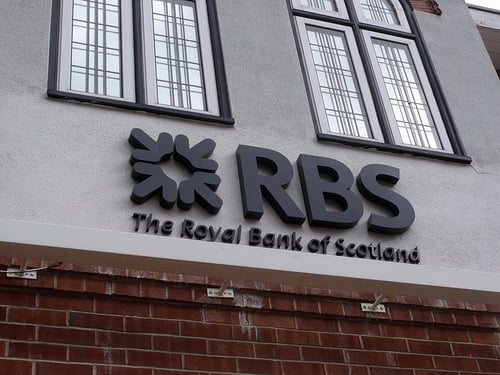

News
Another greenwash revelation sees RBS pull its Climate Week sponsorship
The Royal Bank of Scotland has cancelled its sponsorship of next year’s Climate Week, after continued allegations of ‘corporate greenwash‘. Alex Blackburne looks into the nature of arguably the worst kind of environmentally-driven PR spin.
Greenwash is a dangerous entity. A company wishing to play down its use of child labour, or its reliance on unethical investment, for example, might be inclined to put a green-coloured cloak over their dealings, by announcing a piece of business that, on the face of it, is water-tight and, most importantly, environmentally friendly.
The Royal Bank of Scotland has cancelled its sponsorship of next year’s Climate Week, after continued allegations of ‘corporate greenwash‘. Alex Blackburne looks into the nature of arguably the worst kind of environmentally-driven PR spin.
Greenwash is a dangerous entity. A company wishing to play down its use of child labour, or its reliance on unethical investment, for example, might be inclined to put a green-coloured cloak over their dealings, by announcing a piece of business that, on the face of it, is water-tight and, most importantly, environmentally friendly.
It’s down to the media to expose and report this misbehaviour.
At Blue & Green Tomorrow, we’ve written two articles in this month alone that are perfect examples of corporate greenwashing at its best.
First, there was a story about Coca-Cola’s recycling pledge for the London Olympics next year, at which they claim they will take on the unenviable task of collecting and recycling all clear plastic bottles at the Games, but, as Fred Pearce wrote in the Guardian back in 2008, are Coke’s green claims the real thing?
Then, there was General Electric’s Mongolian wind farm project, which they are fronting despite years of unethical and environmentally threatening behaviour.
The latest in this line of gentle greening comes from the Royal Bank of Scotland (RBS), who have pulled the plug on their sponsorship deal with next year’s Climate Week, a national event aimed at reducing the effects of climate change, following accusations of greenwashing.
“It was clear to us that RBS’ sponsorship of Climate Week could only be greenwash when we looked at the kind of companies that they are providing finance for“, said Liz Murray, head of Scottish campaigns for the World Development Movement (WDM).
“Our research showed, for example, that since public bail-out in 2008, RBS had raised more than £5.6 billion in finance for companies involved in carbon intensive Canadian tar sands projects, £2.2 billion of which was in the twelve months preceding Climate Week.”
It was revealed last year that RBS, which is 80% owned by UK taxpayers, invested some £13 billion into fossil fuels in 2010, as well as putting £7 billion into nine companies with Canadian tar sands projects between 2007 and 2009.
The move is somewhat unsurprising, as it isn’t very often that organisations with the power of RBS succumb to media pressure and allegations. Maybe this little ditty was the tipping point.
RBS was one of four original supporting partners of this year’s inaugural Climate Week, behind Tesco, who are the event’s headline partner and along with Aviva, EDF Energy and Kellogg’s.
Whilst Kellogg’s have also pulled their sponsorship, it is RBS’ decision that has sparked the most intense greenwash claims.
“I can confirm that following discussions between Climate Week and Kellogg’s and RBS, these two companies are not continuing as sponsoring partners of Climate Week 2012“, said Maria Lam, head of communications at Climate Week.
“We are extremely pleased to have had the opportunity to work with these companies to launch the first Climate Week, which was the biggest environmental occasion ever run in Britain.
“Half a million people attended over 3,000 events and more than a quarter of British adults were aware of it.”
Climate Week runs from March 12th to March 18th, and will have a new supporting partner – SodaStream – for next year’s event.
“Using greenwash to gain public acceptance or to try and improve a company’s image is a risky strategy”, concluded Murray, of the WDM.
“If RBS now wants to gain any green credibility then it must make some wholesale changes to its core business, which is undeniably supporting the fossil fuel economy.”
If companies like RBS spent the week mulling over and implementing practical sustainability policies, instead of attempting to turn our eyes from misdemeanours and towards the pretty green colours of marketing spin, then we might all be better off.
Investment in companies that fully practice what they preach, as well as boycotting greenwashing ones, is the key to a sustainable future. To find out more about investing, ask your financial adviser, if you have one, or complete our online form and we’ll connect you with a specialist ethical adviser.
Photo credit: Ell Brown.


 Environment12 months ago
Environment12 months agoAre Polymer Banknotes: an Eco-Friendly Trend or a Groundswell?

 Features11 months ago
Features11 months agoEco-Friendly Cryptocurrencies: Sustainable Investment Choices

 Features12 months ago
Features12 months agoEco-Friendly Crypto Traders Must Find the Right Exchange

 Energy11 months ago
Energy11 months agoThe Growing Role of Solar Panels in Ireland’s Energy Future
















